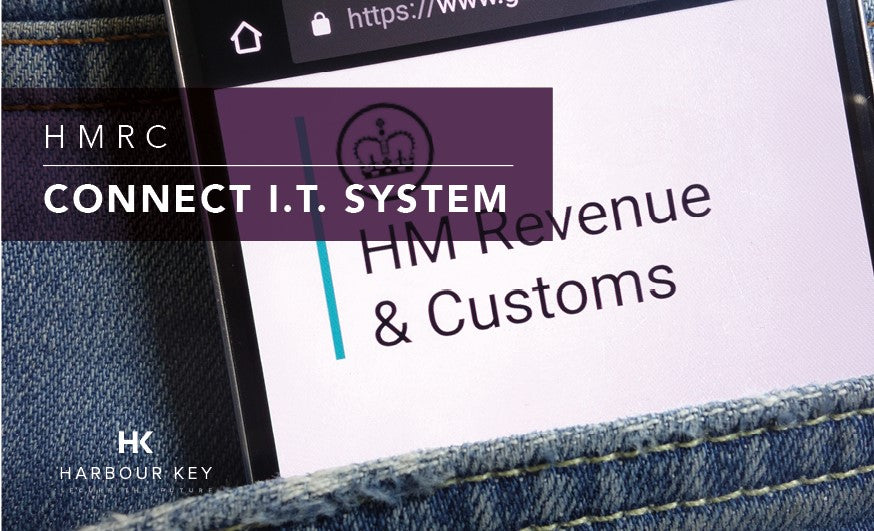
HMRC issued a report in July stating that the tax gap in 2018-19 had reduced again. The tax gap is the difference between the tax that should be paid and the amount HMRC has collected. The report shows that this gap has reduced from 7.5% in 2005-06 to 4.7% in 2019.
The report highlights that the biggest areas where HMRC are not collecting enough tax, is income tax, national insurance, capital gains tax and VAT. When looking at where this shortfall mainly arises, HMRC believe the biggest gap is with small businesses. When first thinking about how the tax gap arises, one immediately thinks about tax evasion. However, all types of behaviour are included, such as innocent errors, failure to take care and misinterpretation of the technical rules.
HMRC has a number of systems and processes to try to reduce the gap. The most high profile are specialist teams set up to target certain areas where HMRC view the risk is significant, for example the team set up to tackle offshore tax evasion. However, with a reduction in manpower over the years, computer systems are now the main weapon, including HMRC's sophisticated IT system known as Connect (so called as it has access to various sources of information and connects the information to the taxpayer). It is this tool, which is having the biggest impact on the tax gap, as it is estimated that 90% of enquiries /compliance checks arise from this system. As local tax offices have disappeared, gone are the days of a local inspector reading a local paper and wondering how the person pictured could afford the Ferrari, based on his filed tax return. Although a number of enquiries are still triggered as a result of tip-offs to HMRC by a disgruntled employees or by former spouse, we are now also seeing enquiries initiated following calls to the Covid-19 furlough scheme hotline. Although a tip-off would be the start of the process, HMRC would use Connect to check the validity of the claim and then see if they can expand the area of the enquiry. Most tax investigations involve all tax areas, HMRC believing that if a taxpayer is evading in one area, they are likely to do so in other aspects of their tax affairs.
We have reported previously on Connect, the key data analysing tool used by HMRC introduced in 2010. During its development the costs spiralled and press headlines were made about the overspend. However, it is thought it has now paid for itself over and over again with the level of tax it has recovered.
Connect is run by a team of HMRC specialists in the Risk and Intelligence Service who use the software to direct resources more effectively. As an example, at the end of July, HMRC issued a further tranche of letters to individuals who they believe have offshore income and assets which have not been reported in the UK (commonly referred to as nudge letters). These letters, and previous letters issued, arise from information supplied by other countries under information exchange agreements. The difference between the latest tranche of letters and previous letters is that the July letters have been issued by the Risk and Intelligence Service, which we believe means they are not speculative and some level of check and review using the Connect software has already been undertaken.
It is believed that as the Connect system has developed, there are now more than 30 different databases available to Connect for analysis (although HMRC does not disclose all its sources of information, so it is likely to be more). We have summerised below as we thought this would be of interest.
- Tax returns (including VAT, PAYE, income tax and corporation tax returns);
- Bank accounts and pensions;
- Credit reference agencies;
- Credit and debit card transactions;
- Online payment providers such as PayPal;
- Foreign tax jurisdictions (including treaties and automatic exchange agreements) and the common reporting standard (see above re; recent issue of nudge letters;).
- Government agencies such as Companies House, the Land Registry and the Border Agency;
- Social media;
- Website browsing and email history;
- Property websites such as Zoopla and Rightmove;
- Online internet site such as Amazon, eBay, Gumtree and similar sales websites;
- Google Street View;
- Council tax records;
- DVLA records;
- DWP records;
- Electoral roll;
- Insurance companies;
- Charities Commission;
- Flight sales and passenger information.
With the number of enquires/compliance checks on the increase, we advise all clients to:
- Take steps/measures to reduce the risk of an enquiry – basically ensure full disclosure with everything being reported. Deal with your tax return in a timely manner and do not leave filing your self-assessment return until late January and this will hopefully avoid errors and omissions;
- Where an enquiry/check cannot be avoided, have processes in place to be able to manage the enquiry process, as information received by HMRC may be misinterpreted
Some process suggestions are summarised below:
- Maintain good business and personal records. We advise all clients and landlords to operate separate bank accounts for their business and personal matters, extracting business profits to the personal accounts for personal expenses. If everything is operated from one or a couple of bank accounts mixing personal and business payments/receipts, then under enquiry HMRC can request to see all bank statements and require an explanation of all transactions!
- Use financial management software for your business, which is a requirement for VAT registered business under making tax digital (MTD), and soon to be a requirement for non-VAT businesses and landlords with a turnover of more than £10k. Spreadsheets can still be used with some bridging software for MTD, however HMRC will always be suspicious of a spreadsheet.
- For businesses, pay the majority of business expenses via the business bank account/credit card, minimising the use of personal funds unless necessary, for example small cash payments which are subsequently reimbursed. When using personal funds, put in an expense claim immediately to reclaim the cost, including detailed mileage records to support car business use claims.
- In respect of property, keep invoices/statements for any capital costs incurred, even if it is your own home (as it may be rented out at some stage). These costs are deductible in calculating the capital gain, and if they cannot be evidenced, HMRC will disallow them.
- If you do not already have free protection cover, for example via the Federation of Small Business, then consider obtaining professional fees service to cover the costs of dealing with an enquiry. We offer this service if you wish to discuss.
- Disclose all offshore accounts and assets, even though they may not earn interest. It is common to have a holiday home, which is not rented out, and hold a local bank account to pay the local bills and the equivalent of Council Tax. Both the property and the account information will be supplied to HMRC under an exchange agreement. Therefore, including details in your tax return, albeit showing nil income, may prevent an enquiry.
Evidence of the improvement in HMRC’s collection, can also be seen in respect of the number of landlords found to have underpaid tax more than halving last year, with HMRC identifying 7,362 landlords who had underpaid or not paid income tax in 2019/20, a 55% decline on the 16,318 recorded the year before. There is also evidence of HMRC targeting the wealthiest with sophisticated tax affairs, launching 430 investigations into serious and complex evasion in 2019/20, a 26% increase on 2018/19 and 65% up on 2017/18. This will be driven in the main, by the information and analysis from Connect.
A simple error, for example forgetting to record taxable interest from a bank account, or reporting a P11D benefit, will not only result in additional tax and interest to pay but tax geared penalties. An innocent error can result in a penalty of up to 30% of the additional tax charged. Negligence, not taking care in completing your return, can trigger a penalty of anything up to 70%, depending on the degree of seriousness. For example, HMRC will view not having a mileage log to support a mileage claim, or evidence to support the business use percentage as negligent, or worse if there is absolutely nothing to support the position.
The tax gap is predicted to increase and tax revenue to shrink as the economy contracts as a result of the Covid-19 pandemic, therefore there will be more pressure on HMRC to raise revenue, which is highly likely to mean more enquiries and checks. Connect gives HMRC easy access to information to support an enquiry and puts them one step ahead. With the increase in the risk, our best advice is:
- Be organised and keep tidy personal and business records;
- Ensure complete and full tax reporting, which generally means dealing with matters early, not at the last minute;
- Consider taking out tax investigations fees insurance.
Please do not hesitate to contact us if you wish to discuss anything covered in the newsletter or any tax, accounting or business-related matter.



